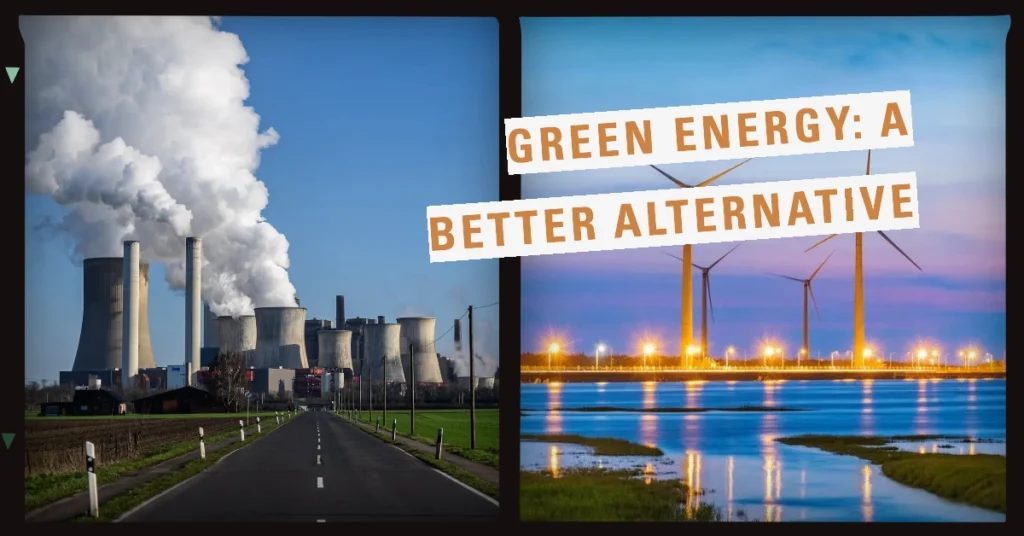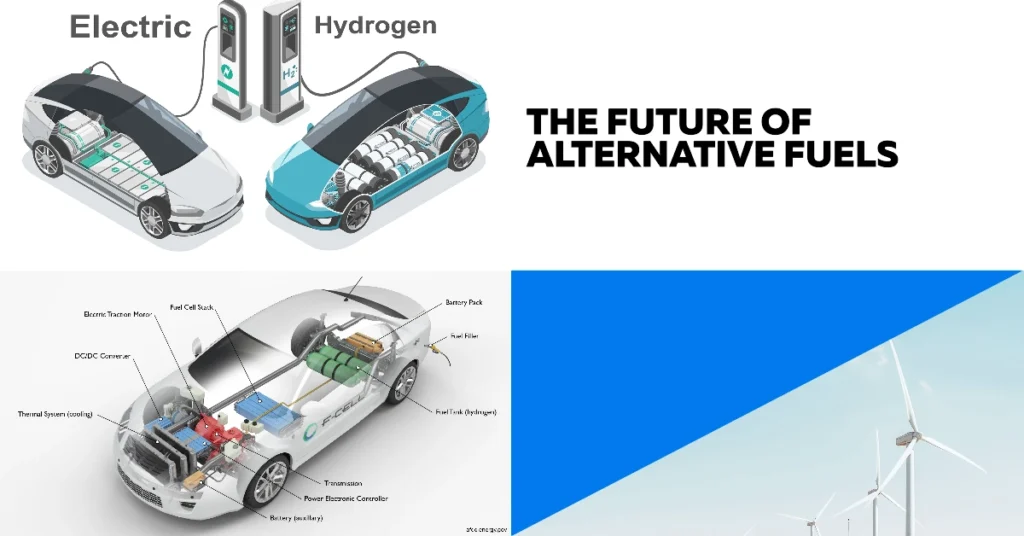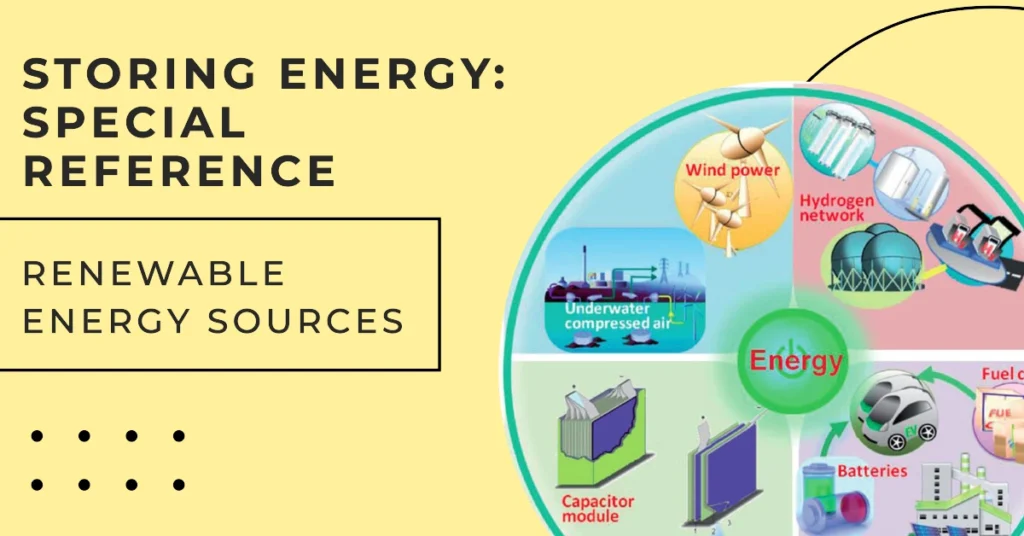In today’s world, the debate between renewable energy and fossil fuels is more relevant than ever. As we face the challenges of climate change and environmental degradation, understanding the differences between these energy sources is crucial. This article will explore why green energy is better than fossil fuels, focusing on various aspects such as environmental impact, cost, and sustainability.

What are Fossil Fuels?
Fossil fuels, including coal, oil, and natural gas, are non-renewable energy sources formed from the remains of plants and animals that lived millions of years ago. When burned, they release carbon dioxide (CO₂) and other greenhouse gases, contributing to global warming and air pollution.
Types of Fossil Fuels
- Coal: Used primarily for electricity generation.
- Oil: Used mainly for transportation and heating.
- Natural Gas: Used for heating, electricity generation, and as an industrial feedstock.
What is Renewable Energy?
Renewable energy comes from natural sources that can be replenished within a human lifetime. These sources include solar, wind, hydro, geothermal, and biomass. Unlike fossil fuels, renewable energy sources do not emit CO₂ when generating power, making them cleaner and more sustainable.
Types of Renewable Energy
- Solar Energy: Harnessed from the sun using solar panels.
- Wind Energy: Generated by wind turbines.
- Hydro Energy: Produced from the flow of water.
- Geothermal Energy: Derived from the Earth’s internal heat.
- Biomass Energy: Created from organic materials.
Environmental Impact
Fossil Fuels
Fossil fuels have significant environmental consequences. Burning fossil fuels releases large amounts of CO₂, a major contributor to global warming. Additionally, fossil fuel extraction and processing can lead to land degradation, water pollution, and habitat destruction.
Renewable Energy
Renewable energy sources have a minimal environmental impact. Solar and wind power, for example, do not produce greenhouse gas emissions during operation. While the manufacturing and installation of renewable energy systems do have some environmental footprint, it is significantly lower than that of fossil fuels.
Cost Comparison
Fossil Fuels
The cost of fossil fuels can vary widely. For example, the price of electricity from coal can range from $0.05 to $0.18 per kilowatt-hour (kWh). Fossil fuels also have hidden costs, such as environmental damage and health impacts, which are not reflected in their market price.
Renewable Energy
Renewable energy has become increasingly cost-competitive. The cost of solar power has dropped significantly, with prices as low as $0.10 per kWh. Wind energy is also affordable, with costs ranging from $0.03 to $0.099 per kWh. Over time, renewable energy is projected to become even cheaper as technology improves and economies of scale are achieved.
Sustainability
Fossil Fuels
Fossil fuels are finite resources that will eventually run out. Their extraction and use are not sustainable in the long term. Additionally, the environmental damage caused by fossil fuels makes them an unsustainable choice for future energy needs.
Renewable Energy
Renewable energy sources are virtually inexhaustible. The sun will always shine, and the wind will always blow. By investing in renewable energy, we can create a sustainable energy future that reduces our reliance on finite resources and minimizes environmental harm.
Health and Safety
Fossil Fuels
The combustion of fossil fuels releases pollutants that can harm human health. Air pollution from fossil fuels is linked to respiratory diseases, cardiovascular problems, and premature death. Additionally, fossil fuel extraction processes, such as coal mining and oil drilling, pose significant safety risks to workers.
Renewable Energy
Renewable energy sources are much safer for human health. They do not produce harmful emissions during operation, reducing the risk of respiratory and cardiovascular diseases. Moreover, renewable energy projects, such as solar and wind farms, have lower safety risks compared to fossil fuel extraction.
Job Creation
Fossil Fuels
The fossil fuel industry has traditionally been a significant source of employment. However, as the world transitions to cleaner energy sources, jobs in the fossil fuel sector are expected to decline.
Renewable Energy
Renewable energy creates more jobs per unit of energy produced compared to fossil fuels. The renewable energy sector is rapidly growing, offering a wide range of employment opportunities in manufacturing, installation, maintenance, and research and development.
Energy Independence
Fossil Fuels
Many countries rely on imported fossil fuels, making them vulnerable to supply disruptions and price volatility. This dependence on foreign energy sources can have economic and geopolitical implications.
Renewable Energy
Renewable energy can enhance energy independence by utilizing local resources. Solar, wind, and other renewable energy sources can be harnessed domestically, reducing reliance on imported fuels and increasing energy security.
Conclusion
In conclusion, renewable energy offers numerous advantages over fossil fuels. It is cleaner, more sustainable, and increasingly cost-competitive. By transitioning to renewable energy, we can reduce our environmental impact, improve public health, create jobs, and enhance energy independence. The future of energy lies in harnessing the power of the sun, wind, and other renewable resources to build a cleaner, more sustainable world.
Summary Table
| Aspect | Fossil Fuels | Renewable Energy |
| Environmental Impact | High CO₂ emissions, pollution, habitat destruction | Low emissions, minimal environmental footprint |
| Cost | $0.05 to $0.18 per kWh | $0.03 to $0.10 per kWh |
| Sustainability | Finite resources, unsustainable | Virtually inexhaustible, sustainable |
| Health and Safety | Air pollution, health risks, safety hazards | Clean air, lower health risks, safer operations |
| Job Creation | Declining employment | Growing employment opportunities |
| Energy Independence | Dependent on imports, price volatility | Local resources, increased energy security |
By understanding the benefits of renewable energy over fossil fuels, we can make informed decisions that support a cleaner, healthier, and more sustainable future.








